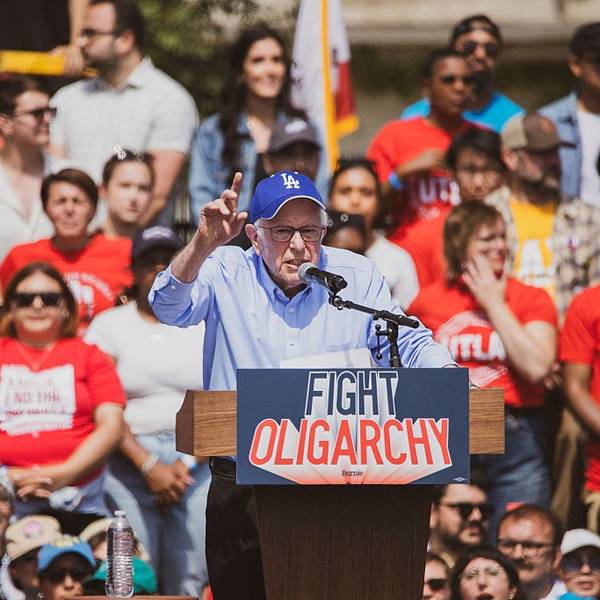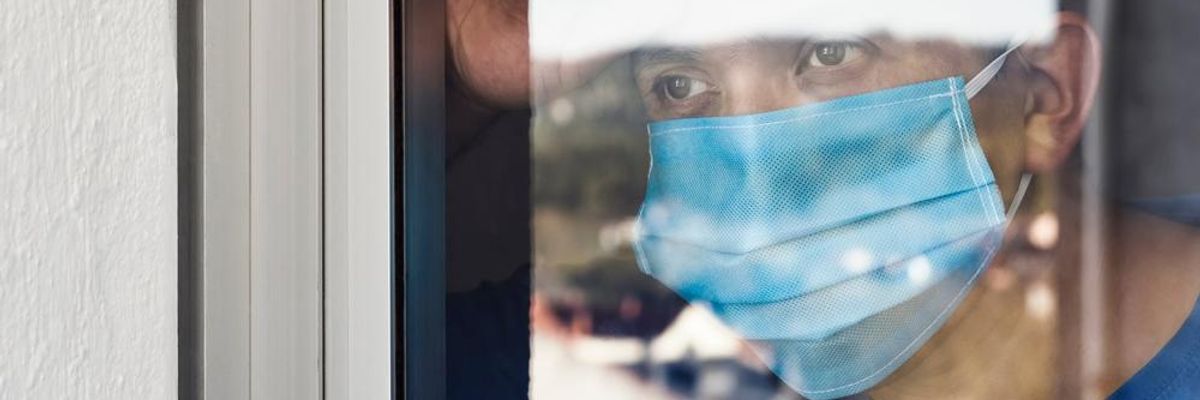When my mother was hospitalized for COVID-19 in early February, my first thought was, "will she be okay?"
I was consumed with anxiety not just about her health, but also about money. How much time would she need to take off work? Would her rent and bills be paid on time or at all? Could I afford to help cover some of these costs for her?
My mother works a low-wage job in medical billing at a small doctor's office. Unlike me, she doesn't have the option to work from the safety of her home and physically interacts with patients on a daily basis. Her job offers only three paid sick days a year--with no other form of paid leave.
The average recovery time for COVID-19 is two weeks. But for people with underlying health conditions--like my mother--it could be much longer.
This means she's stuck not knowing when her next paycheck will come--while simultaneously trying to recover from a virus that has left her dependent on an oxygen tank and multiple medications.
In many ways, her lost wages from this unpaid leave have caused our family more stress than the virus itself.
Unfortunately, my mother's situation is depressingly similar to those of millions of working people. While the labor market has recovered slightly from the peak of the pandemic, many continue to face deep financial hardship.
According to the Pew Research Center, people who have experienced job or wage loss during the pandemic--either personally or in their household--are more than twice as likely to say they've had trouble paying their bills, struggled to pay their rent or mortgage, used money from savings or retirement to pay bills, or borrowed money from friends or family.
The Families First Coronavirus Response Act, passed in March 2020, required certain employers to provide employees two weeks of leave at regular pay if they were experiencing COVID-19 symptoms or needed to quarantine because of exposure. But Congress allowed those benefits to expire at the end of 2020, leaving workers like my mom without a safety net.
The most recent COVID-19 relief package won't restore those requirements--it only provides temporary tax credits to businesses that offer paid leave. That still puts workers at the mercy of their bosses.
Even though the emergency paid leave provided through Families First was only accessible to half the workforce, it was a statistical success. According to researchers at Cornell University and the Swiss Economic Institute, states that gained access to paid sick leave through the first relief package experienced about 400 fewer cases of COVID-19 per day.
Imagine how much better a robust paid leave policy would protect people.
Congress must take bold action to guarantee universal paid sick leave on the federal level. If this pandemic has taught us anything, it's that it benefits us all when workers get paid to stay home when they are ill.
In the richest country in the world, no one should have to worry about how they will pay their bills when they're sick and unable to work.




